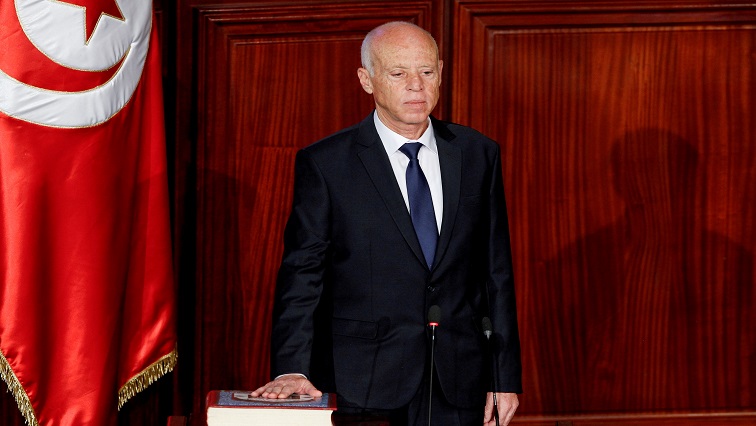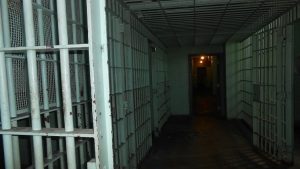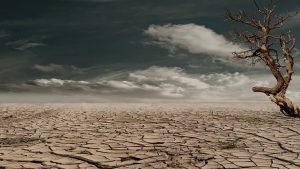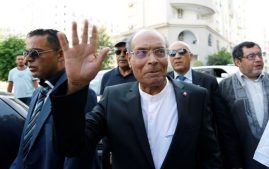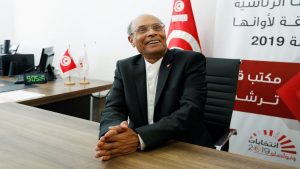For Tunisia’s President Kais Saied, Saturday’s parliamentary election caps the new political structure he built after seizing broad powers last year, but the opposition calls it undemocratic and the main parties will boycott the vote.
Unlike the elected parliament that Saied shut down last year in a move his critics call a coup, the new legislature will have few powers and it will be elected under a law that reduces the role of political parties.
Saied, who ruled by decree after his July 2021 moves against the parliament, has said his actions were both necessary and legal and points to a referendum he held this summer as having given popular legitimacy to his new constitution.
In the busy marketplace of Sidi Bahri in downtown Tunis, however, few people last week seemed enthused by his political project to remake Tunisia with the presidency at the centre, with many saying they did not intend to
“This parliament has nothing to do and the people running for it are only seeking a position and money and they can do nothing. The president has all the power,” said Lazhar Bousitta, 54, selling razors on the street in Sidi Bahri.
Sidi Bari has particular circumstances: it is in one of seven of Tunisia’s total 161 constituencies with only one candidate running.
Even when Sidi Bahri’s MP takes his parliamentary seat, it will be in a body whose powers have been sharply reduced under the new constitution, compared with the previous legislature that took the lead role in forming governments and overseeing policy.
There is a also a widespread distrust in government after years of political wrangling and economic frustration, adding to what critics of the president and many foreign observers see as the hollowing out of Tunisia’s once promising democracy.
Saturday’s vote is on the anniversary of the self-immolation of the vegetable seller whose death in 2010 started Tunisia’s 2011 revolution that triggered the Arab Spring. Tunisia’s political reforms were seen as a relative success story amid uprisings that flared into war or tyranny elsewhere in the region.
THEATRE
Among those still engaged in politics, there is a bitter division between supporters of Saied who blame the main post-revolutionary parties for Tunisia’s problems and those who see the president as a would-be autocrat.
Opinion polling has been banned in the run-up to the election but the referendum in July on Saied’s new constitution had turnout of only about 30%. It was not clear how far that represented apathy or the boycott called by the opposition. The election laws also bar reporting by the foreign media on specific candidates.
The previous parliament, established by a post-revolution constitution that was agreed upon through long negotiations among parties and civil society, had more power than the president but was fractured by ideological splits.
But as Tunisia struggled through years of economic stagnation, many people came to blame parliament for their frustrations and cheered when Saied shut down the parliament and assumed its powers himself.
While the old parties are still largely unpopular, and also bitterly divided, they have mostly coalesced into opposing Saied’s actions and his political vision.
On Saturday, simultaneous rallies were held by the main Islamist party Ennahda and its fiercest old critic, the Popular Constitutional Party made up of supporters of the former pre-revolution autocrat Zine el-Abidine Ben Ali.
As hundreds of demonstrators chanted “Saied get out!” in central Tunis, political leaders of parties boycotting the parliamentary election said they were demanding what they called a return to democracy.
“The upcoming legislative elections are a farce, without any legitimacy and outside the constitution. It’s a theatre piece,” said Sami Tbessi, one of the protesters.
DAILY STRUGGLE
In the Sidi Bahri marketplace, there were some supporters of both the lone local candidate and the president, who said they believed in Tunisia’s democracy and Saied’s new political system.
But most people Reuters spoke to in the area voiced little interest in the election – they are worried about a daily struggle with shortages in shops and pharmacies and declining services, and saw little chance of change.
The economy shrank by 8.79% during the COVID-19 pandemic and it has grown only slowly since then. Inflation last month was a record 9.8% and the government is in talks with the International Monetary Fund for a bailout to avert bankruptcy.
Husam Zayani, a young cigarette seller, said he was unable to pay his rent, water, or electricity bill and he just wanted to leave Tunisia with his wife and daughter.
The number of undocumented migrants from Tunisia has surged this year according to migration and refugee agencies, mostly on boats crossing to Italy.
“I will not take part in any elections. The next parliament will be a big lie and will not be able to do anything for us,” Zayani said.
The powerful labour union, which has more than a million members, has shifted sharply from praising Saied’s political changes to attacking his unilateral approach to rule.
Earlier this month its leader Noureddine Taboubi said the vote would have “no colour or taste”, adding that the union no longer accepted Saied’s political path.


